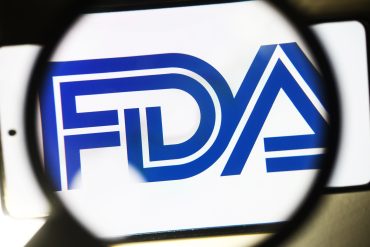
- HealthTech
FDA Eases Gene Therapy Rules to Speed Rare Disease Treatments
3 minute read

FDA Streamlines Gene Therapy Approval Process, Expecting 20 New Treatments Annually for Rare Disease Patients by 2025
Key Facts
- FDA signals increased flexibility in gene therapy regulations for rare diseases, aiming to accelerate patient access
- Projections indicate 10-20 new cell and gene therapy approvals annually by 2025
- FDA requires significant staffing expansion to handle increased application volume
Introduction
The FDA’s groundbreaking shift toward more flexible regulation of gene therapies for rare diseases marks a critical development in healthcare policy. According to Stat News, this strategic adjustment balances urgent patient needs with safety considerations, potentially transforming treatment access for individuals with rare genetic conditions.
Key Developments
The agency’s commitment to flexibility encompasses several key changes to the approval process. Alternative clinical endpoints and surrogate markers may now receive greater acceptance, particularly for conditions where traditional measurement proves challenging. The FDA also indicates willingness to utilize ongoing trial data for confirmatory evidence, rather than mandating additional post-approval studies.
Expedited pathways, including Fast Track, Breakthrough Therapy, and Regenerative Medicine Advanced Therapy (RMAT), may see expanded implementation. These mechanisms could significantly reduce the time required for promising therapies to reach patients.
Market Impact
The regulatory shift creates substantial opportunities within the biotech sector. Smaller companies developing innovative therapies stand to benefit from streamlined testing and approval processes. The anticipated regulatory changes have already sparked increased investment interest, with venture capital and private equity firms showing renewed focus on gene therapy ventures.
Industry analysts project 10-20 new cell and gene therapy approvals annually by 2025, signaling robust sector growth. This trajectory suggests a transformation in the treatment landscape for rare genetic conditions.
Strategic Insights
Biotech companies must balance accelerated development with rigorous safety protocols. The FDA’s openness to alternative approval pathways does not diminish the requirement for thorough safety evaluation. Companies successful in navigating this balance will likely emerge as sector leaders.
Expert Opinions and Data
Leading geneticists emphasize maintaining safety standards alongside acceleration efforts. “Patient safety must remain a priority even as we seek to accelerate development,” notes one prominent expert. This perspective reflects broader industry consensus on balancing innovation with protection.
The FDA faces significant operational challenges in implementing these changes. The agency requires substantial staffing increases to manage the growing volume of gene therapy applications. Without adequate expert reviewers, potential bottlenecks could impede the promised acceleration of approvals.
Conclusion
The FDA’s move toward regulatory flexibility represents a significant shift in rare disease treatment development. While maintaining safety standards, these changes promise to accelerate patient access to innovative therapies. The biotech sector’s response, coupled with increased investment activity, suggests broad support for this regulatory evolution.








